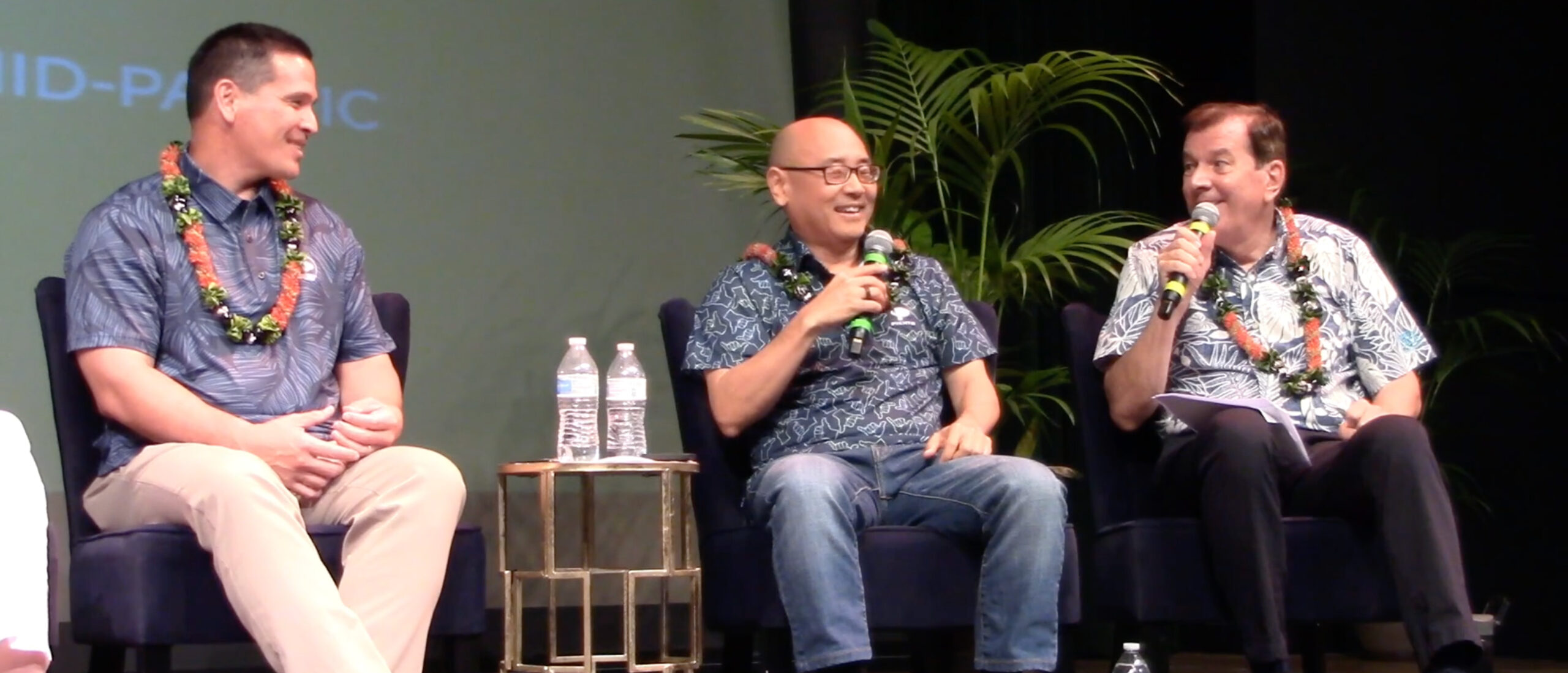Hawaii Business Magazine AI Panel
Artificial intelligence is already having a transformative impact in Hawaii. According to a panel discussion held on August 30 at Mid-Pacific Institute’s Bakken Auditorium, AI is being used across the islands to synthesize data, generate ideas, and automate tedious tasks. The event, hosted by Hawaii Business Magazine, brought together five local experts to share insights on AI applications and implications for the state before an audience of students, educators, and other adults.
In interviews alongside the panel discussion, the experts highlighted some of their main takeaways from artificial intelligence, and how AI is synthesizing data, generating ideas, and taking over tedious tasks.
“This is the dawn of a whole new, essentially revolutionary era,” said Ian Kitajima. He described AI as like having “a superpower friend on my shoulder” that helps him write proposals and summarize information.
Others echoed the transformative potential of AI. “The thing about AI is it’s best at taking a lot of these dull, dirty or dangerous or difficult jobs that humans shouldn’t be doing,” said Chase Conching. By automating routine work, the technology allows people to focus on creative, empathetic and uniquely human tasks.
Educators also see a role for AI in improving learning. “For the first time, a technology can [acquire skills, knowledge and competencies] in some domain, and that requires interaction with materials and expert resources,” said Mark Hines. He has begun using AI as a “co-thinking partner” to enhance his own lessons and knowledge.
In the media realm, AI is rapidly changing the work of reporters. “Already, I’m using AI to analyze data, as a research tool, as a transcription tool,” said Steve Petranik. He noted that AI transcription, which turns interviews into text, has greatly simplified what was once a laborious process.
Other domains seeing benefits include transportation and government services. Ed Sniffen said AI filtering of data helps them make decisions to “protect lives and make lives better.”
Still, responsible development of AI requires vigilance. “There’s a very real concern about AI ethics and bias,” noted Conching. He said diverse training data helps ensure AI systems don’t discriminate.
While recognizing the need for caution, many remain hopeful about AI’s potential, especially for Hawaii’s economy. “I think it’s going to help us understand our processes [and] our data better,” said Summer Rankin. She suggested AI can aid businesses even without large data science teams.
Kitajima called on the younger generation to pioneer new AI applications “to solve really hard problems.” He said their lack of experience may free them to find creative solutions without being constrained by past failures.
Ultimately, said Hines, the key is for individuals to explore AI hands-on rather than reacting with fear. “My advice when I work with teachers and leaders is let’s start by just using it for something you like to do,” he said. In that way, people can see first-hand the benefits instead of just the risks.

